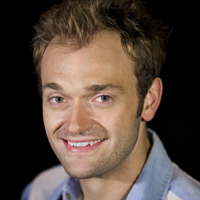About Milton's Work
Milton Babbitt was a composer, music theorist, and teacher.
Babbitt’s compositions reflected a concern for time and rhythm in music, and the extension of the notion of parallelism of process from various pitch dimensions to the temporal domain. Babbitt’s articles on music theory reflected similar concerns, particularly with respect to twelve-tone serialism, electronic realization, theory construction, and methodology. A pioneer in the use of synthesizers and advanced twelve-tone procedures, Babbitt influenced a wide range of contemporary musicians.
Biography
Babbitt was a member of the composition faculty at the Juilliard School. He taught previously at Princeton University, where he was a founding member and director of the Columbia-Princeton Electronic Center and was named William Shubael Conant Professor Emeritus. He was the author of The Collected Essays of Milton Babbitt (2003). His many compositions included Three Compositions for Piano (1947), Vision and Prayer (1961), Philomel (1964), Fourplay (1984), Septet but Equal (1992), and Concerti for Orchestra (2005).
Babbitt received a B.A. (1935) from New York University and an M.F.A. (1942) from Princeton University.
Last updated January 1, 2005.
Published on August 1, 1986



























